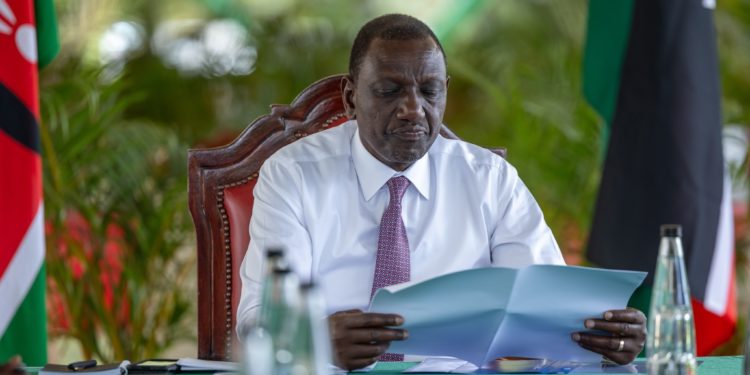Starting June 2024, Kenya has been hit with a wave of social tensions and political instability culminating from the government’s planned implementation of revenue-raising measures through taxes. High levels of poverty, unemployment, and income inequality have fueled public opposition to new taxes, making it difficult for the government to introduce and sustain these measures. As a result, the fiscal deficit is expected to remain high, averaging 4.4% of GDP in fiscal years 2025 and 2026, leading to continued weak debt affordability.
Furthermore, in July 2024, Moody’s, one of the main Credit Rating agencies that external bondholders rely on in tandem with Fitch, downgraded Kenya’s credit rating from B3 to Caa1. Kenya’s downgraded rating means that borrowing costs in the international bond market will rise. Investors will demand higher yields to compensate for the increased risk, making it more expensive for the government to raise funds. This scenario could strain the budget further, as more resources will be diverted toward interest payments rather than productive investments. To mitigate the impact of the downgrade and restore investor confidence, the Kenyan government needs to adopt a multifaceted approach
The Kenyan government should therefore focus on reducing non-essential and wasteful expenditures while safeguarding critical social and infrastructure investments. Implementing zero-based budgeting can help identify and eliminate redundant or inefficient spending. This budgeting approach requires justifying all expenses for each new period, rather than simply adjusting the previous year’s budget. By meticulously evaluating and prioritizing expenditures, the government can ensure that funds are allocated to the most impactful areas, thereby enhancing fiscal discipline and efficiency without compromising essential services and development projects.
To drive economic growth amid these revenue challenges, it is crucial for the government to prioritize investments in sectors with high growth potential, such as tourism, manufacturing, and technology. These sectors have the capacity to generate significant revenue and create jobs. Providing targeted incentives, such as tax breaks or subsidies, can attract both domestic and foreign investment. Additionally, improving the business environment by addressing regulatory hurdles and infrastructure bottlenecks will make these sectors more attractive to investors.
The government should also streamline regulations to reduce bureaucracy and make it easier to start and operate businesses in Kenya. Simplifying registration processes, reducing the number of required permits and licenses, and creating a one-stop-shop for business services are essential steps. By minimizing administrative burdens, businesses can save time and resources, allowing them to focus on growth and innovation. Ensuring that the regulatory framework is transparent and consistently applied will build investor confidence and encourage long-term investment. A conducive business environment is essential for fostering entrepreneurship, attracting foreign direct investment, and driving economic growth.

















